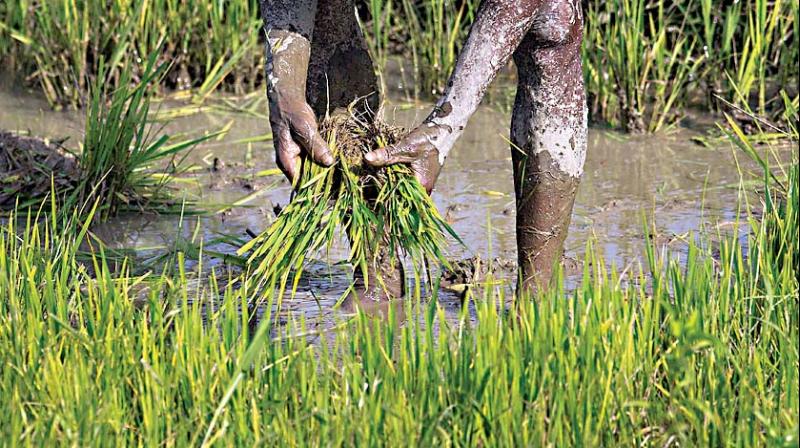Farmers, middle class, informal sector: Everybody wins

In 2014 people voted unequivocally to transform India and free our nation from a decade of corruption, malgovernance and policy paralysis. In 2019, people will vote to continue this path and tryst with transformation for a prosperous New India where every Indian will have an opportunity to realise his or her aspirations.
The economy has travelled far from those bleak dark days of 2014. When the UPA left office in 2014 it left behind a broken economy: Over 12 quarters of successive GDP decline, 24 quarters of rising inflation, a record Current Account Deficit of $400 billion, fiscal profligacy, declining capital formation, flight of foreign investors and scam-inspired plummeting of investor confidence, a banking system wrecked by years of politically directed lending, a tenth of the jobs created by NDA 1, an economic model that created jobless growth, corrupt crony capitalism of the worst kind, a cash and high-denomination note dominant economy that was, in turn, inflating asset prices and a dysfunctional administration — this list can go on. The Indian economy in 2014 was on the brink, both qualitatively and quantitatively.
The fact that the UPA was responsible for that cannot easily be erased from public memory. Fast forward to the Narendra Modi government in 2019 and all critical indicators point to a stable economy – growth at 7 per cent plus, with moderate inflation and fiscal deficit and record foreign investment over the last four years. Most importantly, the perception of a corrupt government has been replaced with one that’s corruption-free, determined and hardworking. The interim budget has helped farmers, the middle class and the informal sector. The middle class has shouldered much of the burden of government spending on the poor and other areas and this is the government’s way of acknowledging this and another step on the roadmap for a higher tax compliant, lower tax rate nation.
The interim budget is a clear continuation on the roadmap that began in 2014, of transformation into a more competitive, efficient and clean economy that is set to grow at higher rates.
Our New India - an equitable and a prosperous India - will be built not by crooked dynasts living off taxpayers, but by those who have experienced poverty and adversity and are determined to give all Indians a fair future.

